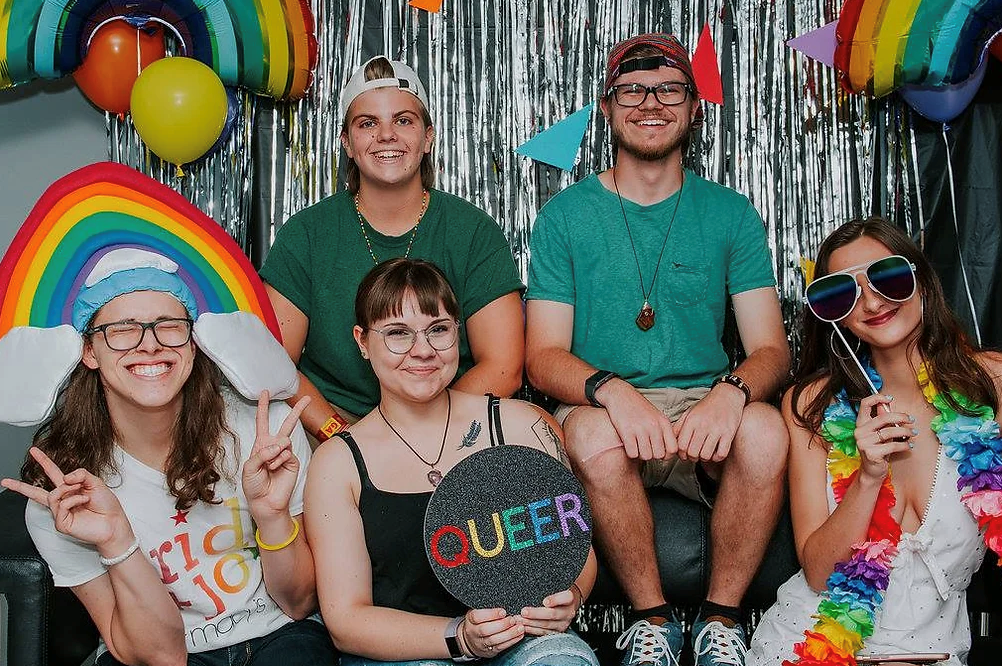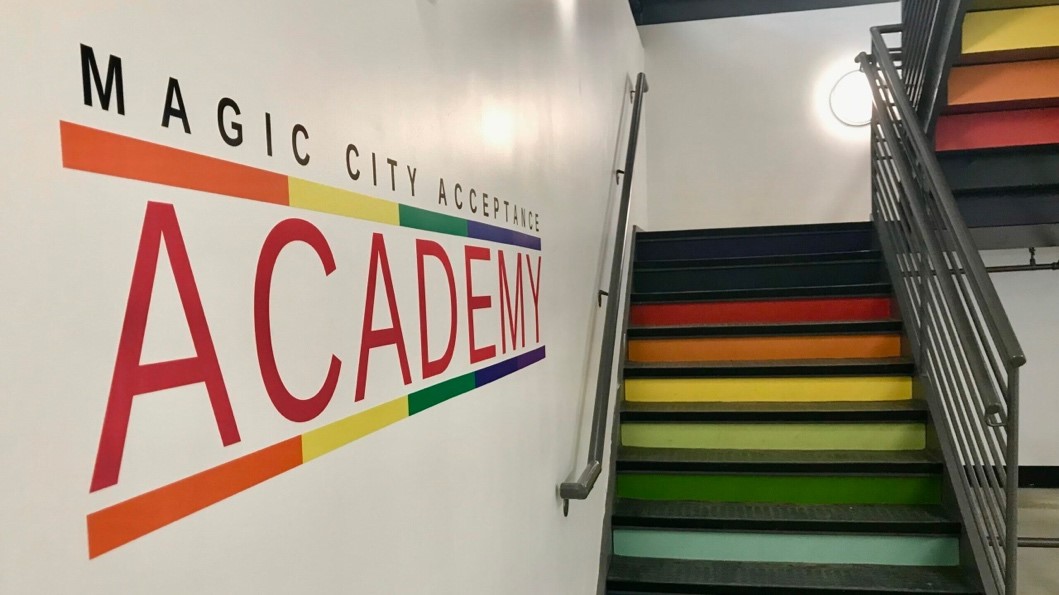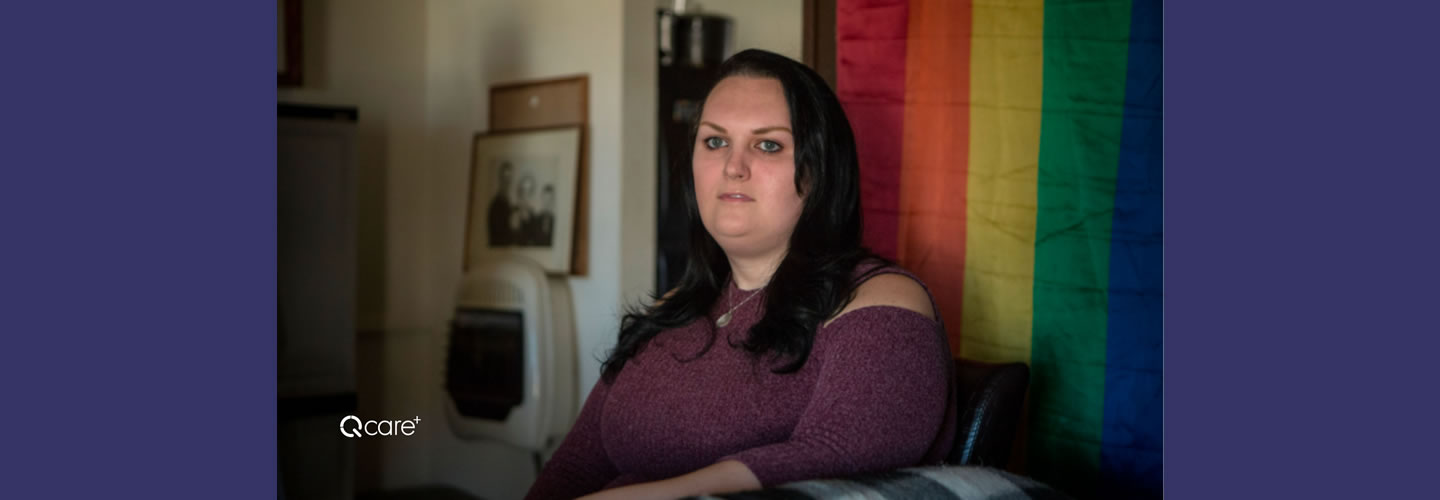In honor of Southern HIV/AIDS Awareness Day, we spoke to our partners at Birmingham AIDS Outreach (BAO) in Birmingham, Alabama about their efforts to increase access to health care and community. We spoke to Destiny Clark, Program Manager, about all things LGBTQ+ wellness. Oftentimes, transgender people in the South are the most marginalized. “Trans people just want to live without being criticized,” says Destiny.
Sitting in her office, paperwork stacked high on her desk, Destiny Clark pauses to contemplate the work her team has done to create a safer community for transgender people like her.
Destiny says, “Before I started working here, I never saw trans women at HIV testing events and other community events. I took this job so I could change that.
Many of her clients have the same questions: “How do I find a doctor that is affirming? How will I afford treatment? How do I find community in a place where LGBTQ+ people are still under attack?”
“It’s a constant battle to fight stigma here in the South,” says Destiny, “We must keep teaching people that times change, people change, and we have to keep up with those changes. PrEP, for example, and U=U. Those are the kinds of tools we have that help us stay relevant.”
Q Care Plus is the virtual PrEP (pre-exposure prophylaxis) provider for BAO. But how are the teams at BAO and Q Care Plus working to address the important questions raised by people in Birmingham and beyond? Read on to find out.
340B Funding Provides New Opportunities
Something that sets Q Care Plus apart from other companies is its partnership with community clinics and non-profits all over the country, helping them access 340B funding, which is federal funding that helps certain healthcare providers, like hospitals and clinics, get discounts on prescription medicines.
Because 340B funding frees up additional resources, there is more room in community clinic and non-profit budgets to launch other initiatives. Some non-profits offer free voguing classes. Others add additional staff to help with growing needs. Birmingham AIDS Outreach, on the other hand, has utilized some of these additional funds to bolster initiatives like the Magic City Acceptance Center (MCAC) for LGBTQ+ youth in the community that have proven lifesaving.

Serving over 1,000 youth ages 13-24, the MCAC hosts events (like drag shows), workshops (on topics like self-care), offers free HIV/STI testing, and more.
Raising the Next Generation of LGBTQ+ Advocates
The MCAC, a passion project of Destiny Clark, has been a haven for trans youth during a time of polarization.
“There are LGBTQ+ youth in our community who just weren’t going to school because of bullying,” says Destiny. “Some of them were really struggling with their mental health, and it was much easier to stay at home and complete their education online or get their GED.”
With so many youths dropping out, home-schooling, or jumping into adulthood at an early age, the staff at BAO had a brave idea: Why not take their acceptance center a step further and create a school that harbored students who had trouble finding acceptance elsewhere?
The idea lay dormant for years, though. This was not due to a lack of passion. Rather, it was due to state inflicted barriers.
“We were denied three different times by the Birmingham Education Board and twice by the State of Alabama. Finally, the State Charter School Commission after the third vote approved the school in November of 2020,” says Destiny.
The Magic City Acceptance Academy (MCAA) was born. This school is “the first LGBTQ-affirming school in the South and one of few in the country that explicitly calls itself such,” according to Teen Vogue.
The School’s Impact on Students
According to their website, “The Magic City Acceptance Academy (MCAA) will motivate and prepare students in grades six through twelve by providing an exceptional, innovative, and quality-driven education. MCAA’s purpose is to engage students who have dropped out, are not thriving in traditional schools, or are enrolled in home-school programs. MCAA will provide a brave learning environment and LGBTQ+ affirming culture for all.”
Though the school has already graduated two classes and accepted hundreds of students, droves of people would like to see the school fail.
Cars with tinted windows drive by MCAA slowly, and it is unclear to students whether this is one of their guardians, or a stranger who wishes to harm them. Disgruntled people shout slurs from across the street at students entering the school. Strangers with hurried footsteps try to discreetly take pictures and videos of students and teachers at the school, some of which show up online.
“Unfortunately, a lot of people have openly attacked the school, and some political figures have run ads against the school all over the state,” says Destiny. “The ads target the students. As time goes on, things have gotten better, and the ridicule has died down. But we still have issues sometimes.”
In a 2022 Teen Vogue article, one MCAA student talked about having their image included in negative political ad targeting the school. When the school first started, “It was a happy and positive thing at the moment,” former student Evelyn says. “And then it was weaponized for a stupid, stupid reason.”
Despite all odds, the school continues to provide a safe space for youth in Birmingham.
In a New York Times interview, a student named Rory says that the school has given him hope: “If I wasn’t so optimistic about my future, I don’t know if I would still be alive.”
Beyond providing a safe space, there are other ways this school could have an impact in the future, including reducing negative mental health outcomes for students.
Research has found that “Inclusive anti-bullying policies may exert protective effects for the mental health of [LGBTQ+] youth, including reducing their risk for suicide attempts,” according to the National Institute of Health. Additionally, both LGBTQ+ students and heterosexual students experience less emotional distress and less harassment if they go to school in an inclusive environment, according to the Centers for Disease Control and Prevention.

The South Continues to Change
Outside of stigma and discrimination, there are additional barriers in the South for LGBTQ+ people who need health care services.
“The distance to get to an affirming provider in Alabama is a huge barrier,” says Destiny. “Me and my team work to provide rides for LGBTQ+ people who want affirming care, but we obviously can’t reach everyone, and we can only drive two hours out from Birmingham due to limited funds.”
There are many people who would like to be in care in possible. “We have a waitlist of people who want to be seen by one of our health professionals,” says Destiny, “I worry about our community. But, at the same time, I have a lot of hope. We must continue fighting.”
Having partners like Q Care Plus has alleviated some of the barriers BAO experiences. “Because of Q Care Plus, we can offer PrEP 100 percent free to all our clients,” says Destiny. “Cost has been a constant worry for many of our clients. This has been a game changer for us and has helped us see an outrageously high increase in PrEP sign ups.”
The fight for equality in the South continues. “We’re still protesting, because trans people still have so much to lose,” says Destiny, “and that’s what keeps me going. The better informed I am, the more I can do. If we need to throw bricks like they did at Stonewall, that’s fine. I don’t mind throwing bricks.”
